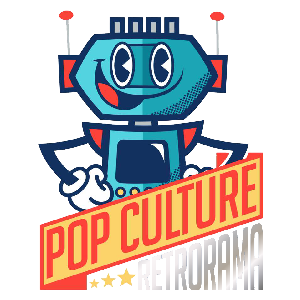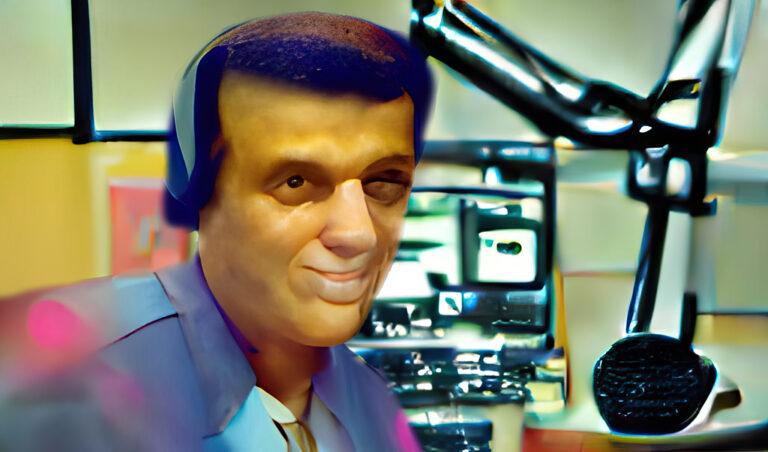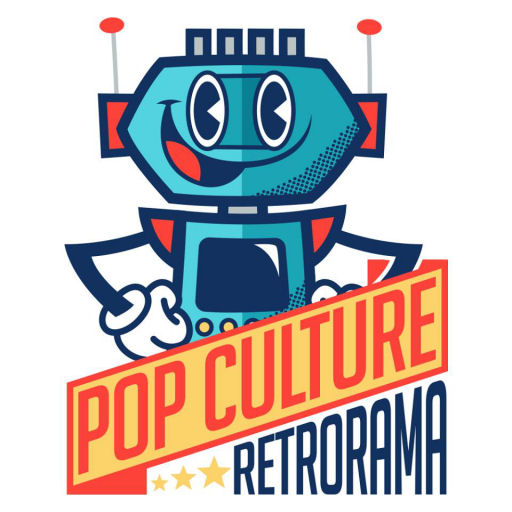In the criminal justice system, the people are represented by two separate yet equally important groups: the Future Cop who investigates crime, and the copyright attorneys who battle over who created Future Cop. This is their story. [bonk bonk]
And you’d better buckle up, because it’s not the most straightforward story.
Produced by Paramount, Future Cop premiered on ABC in 1976 as a pilot movie starring Ernest Borgnine, John Amos, and Michael Shannon, with Shannon starring as Haven, a rookie policeman entrusted to Cleaver (Borgnine) for training. Cleaver and Officer Bundy (Amos) have been partners for years, so suddenly having to break in a rookie cop isn’t Cleaver’s idea of a good time.
And Haven is greener than most rookies – especially, as Haven discovers, if you look inside him and find his circuitry. Haven is a robot! The LAPD is giving Haven a trial run within its ranks as a test to see if robots could take over some of the more dangerous aspects of police work. Cleaver wasn’t supposed to find out, but he did…and now he’s sworn to secrecy, unable to even breathe a word about Haven’s robotic nature to Bundy. The three routinely end up on duty together, with Cleaver having to frequently cover for Haven’s quirks and eccentricities arising from the fact that Haven really doesn’t get human nature – and understanding human nature is a vital part of a cop’s instincts.

Bizarrely, at the time of its premiere, Future Cop wasn’t the only show on the air with that premise. ABC simultaneously had a sitcom on the air with the same basic setup – veteran cop discovers his rookie partner is a robot – called Holmes & Yoyo. Future Cop, while it had comedic elements, was intended to be a more serious take on that setup.
Future Cop became a series in 1977, with the cast remaining intact, but it had been a year since the pilot, which was quite a gap in an age before there was widespread adoption of home video recorders. Borgnine recorded a voice-over narration to catch new viewers up on the show’s premise during the open credits, but it still didn’t seem to help. A two-part episode was hurriedly edited together as an ABC Friday night movie, and the remaining episodes were shuffled to different nights. Even for a new spring series pickup outside of typical TV ratings periods, Future Cop was encountering some resistance. It quickly vanished from ABC’s schedule.

And then there was the lawsuit. Science fiction writers Harlan Ellison and Ben Bova had shopped around their idea for a show about a rookie robot police officer months before Future Cop’s 1976 premiere. They contended that Paramount (and specifically Paramount programming executive Terry Keegan) and ABC had taken their original concept – titled “Brillo” (named after the kitchen scrubber – as in “steel fuzz”) – and run with it without ever paying them a cent. This was hardly the first time that such a charge had ever been leveled at a Hollywood studio or a TV network, but what made this lawsuit different was the sheer rage and tenacity that Ellison brought to the proceedings. Long a crusader for writers being paid fairly for their ideas and stories, Harlan Ellison was not letting go, and was not entertaining anyone’s attempts to convince him to drop the matter.

Future Cop’s run ended in 1977, almost as quickly as it had begun, but the producers behind the show managed to get the show “re-piloted” at NBC, still starring Borgnine, Amos, and Shannon, under the title Cops & Robin. Though it presented a new case and again set up the notion of Haven as a rookie robot cop whose identity must be protected by Cleaver, Cops & Robin failed to gain enough interest to become a series again. Future Cop was finally off the case, having failed to ever really decide if it was a comedy or a drama.
There was still drama to come, though; after a four-year wait since the suit was initially filed after the pilot movie aired, Ellison & Bova’s claim against Paramount, Keegan, and ABC finally made it to court…and in only four weeks, a jury decided that Future Cop was too substantially similar to “Brillo” to be ignored. The two writers sought around $3,000,000 in damages, but were awarded a little over $300,000 in total…some of which Ellison used to rent a billboard directly across from the Paramount lot with the message: “Writers, don’t let them steal from you.” (Ellison’s acrimonious relationship with Paramount would only worsen in the 1980s and ’90s when the studio licensed out elements of his Star Trek episode, City On The Edge Of Forever, for merchandising purposes without giving the creator of those elements a cut of the proceeds.)
In the end, Future Cop: The Lawsuit lasted four years longer than Future Cop: The Series. The entire series – including both pilot movies as well as the very short run of weekly episodes – is available on DVD. I wonder if Harlan Ellison got a cut?





+ There are no comments
Add yours